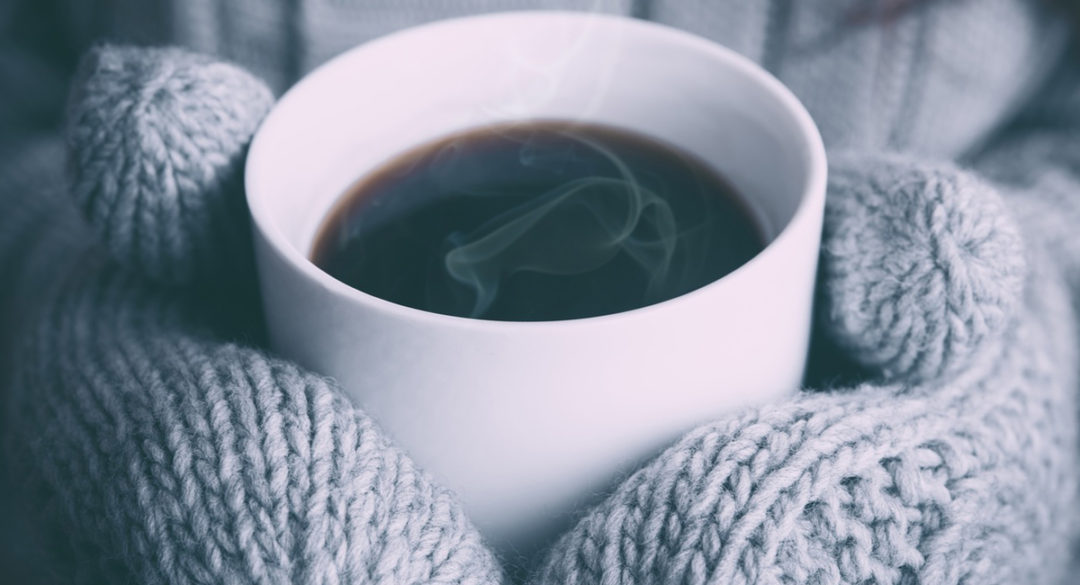Winter is a tough time. Well not if you live in Los Angles or Cape Town or Miami or…… well loads of places but for most of Europe and many other places round the globe, winter is a time of colds, flu, low mood, and also weight gain. Why do these things happen and is there anything we can do to lessen the impact or even prevent it happening?
Nutritionist, Fleur Borrelli, gives us a little biology lesson here that explains it all. And the good news? Yes there are natural and easy things to do that will help.
Winter Health
Winter seems to challenge our capacity to live a ‘circadian-friendly’ life. Winter begins at the point at which the clocks are put back towards the end of October. The rationale for moving the clocks back and forth is that we make better use of the daylight hours and there is less demand for electricity usage and we therefore save energy. It was Benjamin Franklin who was said to have coined the proverb ‘Early to bed and early to rise makes a man healthy, wealthy and wise.’
The problem is winter goes against our natural evolutionary rhythm! We now know through DNA evidence that we moved out of Africa around 60,000 years ago. It was while we were in Africa that we developed a ‘day/night’ rhythm because we would hunt during the day whilst the larger predators, lions and tigers, were asleep. We have kept this rhythm ever since. Whilst there have been some adaptations to living in the Northern Hemisphere, on the whole shorter daylight hours can bring disadvantages. This is because we have thirteen clock genes all regulated by the master clock gene in the brain – in the suprachiasmatic nucleus. All our cells, organs and tissues including our bones are dependent on us having exposure to a day- night rhythm. But in winter we tend to rely a lot more on artificial factors such as electricity and central heating and we have no exposure to sun. This can result in stress, depression and poor physiological health.
Sleep disturbances
The pineal gland in the brain is there to sense light and darkness. When it senses darkness it produces melatonin. Melatonin regulates the ‘sleep-wake’ cycle by making us feel drowsy and ready for bed. It is also a ‘repair’ hormone because whilst we are asleep it acts as a free-radical scavenger as well as an immune system booster to counter the effects of inflammation. This ‘sleep-wake’ cycle can be disturbed particularly if we live in the city because we are potentially exposed to light twenty-four hours per day. Not only is our sleep pattern disturbed but also the efficient functioning of every organ and system in our body including hormone balance and blood sugar control. Both insomnia and hypersomnia, sleeping too much, have been linked to coronary events. What we can do to support the production of melatonin is to ensure that at night we adopt a night-time rhythm to wind-down’. Ideally all computer and T.V. screens should be switched off an hour before bedtime and we read a book using low level lighting. Black-out blinds are also an effective tool to boost melatonin levels. Melatonin is produced from serotonin which in turn is produced from an amino acid, a building block of protein, called tryptophan. Food sources of tryptophan include chicken, turkey, banana, salmon, nuts and avocado. By eating some of these foods, particularly in the first part of the day, you may be improving not only your mood but also your sleep quality.
Weight gain
Winter is associated with a tendency to put on weight. Typically in our evolutionary history winter was a time of compulsory fasting because of the lack of food. Our bodies were adequately prepared for this because we would be able to use stored fat and protein as an energy source. Nowadays winter is a time associated with high meal frequency and the overconsumption of high starchy carbohydrates such as cakes, bread and biscuits. Frequent intake of these high calorie foods will upset our blood sugar levels and weaken our immune system. We also become more sedentary over the winter period as it becomes less appealing to go out into the great outdoors. The less active we are the more prone we are to put on weight. This is made worse by our reliance on central heating. We are equipped to deal with the cold by shivering. What shivering does is activate what is known as brown adipose tissue (BAT) or ‘brown fat’. Brown fat, unlike white fat, is healthy because it gets broken down to produce heat in the body. The problem is that we are too reliant on central heating we lose our healthy brown fat and our ability to adjust to the cold in a process known as’ thermoregulation’. The trick to keeping your brown fat is by holding off for as long as possibly before turning the central heating on and only keeping it on for a small number of hours in the day. Certain nutrients such as green tea, the omega 3 fatty acid DHA and curcumin the active ingredient in turmeric can also support thermoregulation in winter.
(Glynis says – I religiously take omega 3, my favourite being Krill Oil and have recently started taking Curcumin as it is very anti-inflammatory. Most of us have some sort of inflammation to a greater or lesser degree which can cause health conditions as well as accelerated ageing, and we can’t have that can we??)
The winter blues
Depression and anxiety disorders tend to manifest in winter. Good mood depends on a number of substances being made available to the body and one of these is vitamin D. Vitamin D is formed from cholesterol when sunlight hits our skin. Vitamin D alongside DHA as well as vitamin A modulate genes responsible for brain structure, energy metabolism and brain function. In fact vitamin D affects the function of almost all organs in the brain and could be considered an anti-depressant. It is therefore advisable to supplement this vitamin during the winter months as well as eating a diet rich in oily fish and yellow and orange root vegetables such as squash and carrot.
(Glynis says – Vitamin D is one of the most important supplements to take and particularly in winter. I swear by it. It’s important to take Vitamin D3 along with Vitamin K2. If you have to have a blood test for any reason, ask your doctor to include a vitamin D test. I take a high dosage in winter, 5,000 – 10,000 mg to keep my levels normal.)


Comments 1
Many thanks for this article. Just now I’m going through my second “autumn beginning” in 6 weeks. I was above 64°N in September, and it was starting to get dark, 4-8°C and rainy. End of September I came back down to 48°N, and autumn is starting here now, with rain and fresher temperature. It’s tough! Following earlier advices, I’ve increased my amount of vegetables, and will now get much more squash and carrots.